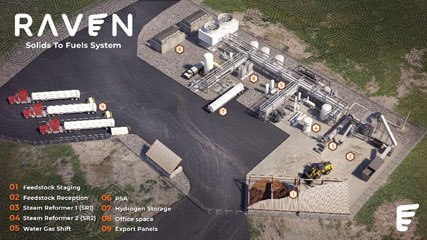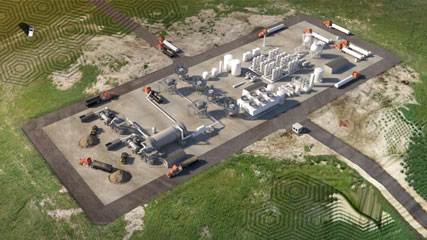Renewable Fuel productions from Municipal Solid Waste, Industrial Solid Waste and Organic Waste
We invested in Raven SR, Inc., a US company that will produce renewable fuel from municipal solid waste in August 2021.
Raven SR’ has announced that it will soon be starting commercial production of its hydrogen plant as a first step. The innovative Steam/CO2 reforming, non-combustion technology has the potential to revolutionize the renewable fuels industry by converting various types of local waste, such as green waste, municipal solid waste, organic waste and methane from municipal solid waste, into clean fuels including hydrogen and SAF.
With its distributive model, Raven SR's technology offers a sustainable solution for the reliable long-term production of renewable fuels. By utilizing local and regional waste, the company produces fuels closer to market demand, leading to greater decarbonization and addressing environmental issues caused by waste in specific regions.
ITOCHU, a global leader in the renewable energy sector, intends to keep close relationships with Raven SR to commercialize projects that contributes to a stable supply of renewable fuel. Raven SR's technology represents a major breakthrough in the production of renewable fuels and could play a significant role in reducing carbon emissions and promoting sustainability in the global energy market.
|
Hydrogen Plant image |
SAF Plant image |


